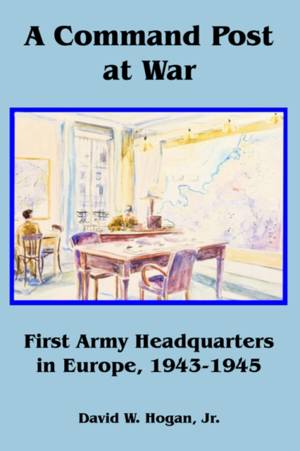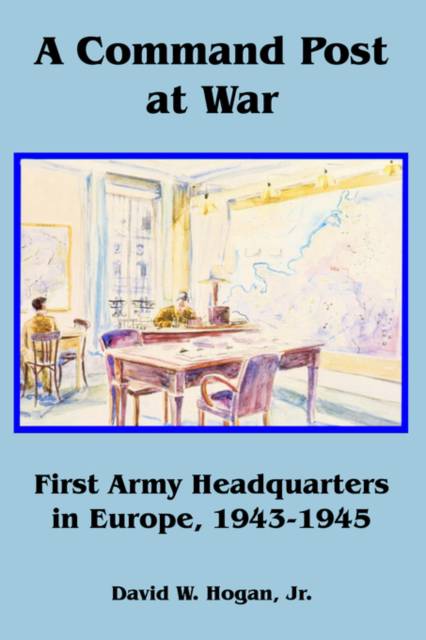
Bedankt voor het vertrouwen het afgelopen jaar! Om jou te bedanken bieden we GRATIS verzending (in België) aan op alles gedurende de hele maand januari.
- Afhalen na 1 uur in een winkel met voorraad
- Gratis thuislevering in België vanaf € 30
- Ruim aanbod met 7 miljoen producten
Bedankt voor het vertrouwen het afgelopen jaar! Om jou te bedanken bieden we GRATIS verzending (in België) aan op alles gedurende de hele maand januari.
- Afhalen na 1 uur in een winkel met voorraad
- Gratis thuislevering in België vanaf € 30
- Ruim aanbod met 7 miljoen producten
Zoeken
€ 40,45
+ 80 punten
Omschrijving
World War II remains the defining experience for the U.S. Army in the twentieth century. It has had a lasting impact on the nation and its place in the world and on the Army and the way it organizes and fights. Although historians have written numerous volumes concerning this global conflict, some gap in the literature remain. In particular, the subject of an American field army headquarters and its organization and role have attracted little attention. Studies on the personalities and styles of individual commanders exist, but the command posts themselves-the ways in they were structures and operated and the functions they performed-have not been much explored. With A Command Post at War: First Army Headquarters in Europe, 1943-1945, the Center of Military History attempts to redress this shortcoming. This study addresses the First Army headquarters in the European theater from its activation in October 1943 to V-E Day in May 1945. Under Generals Omar N. Bradley and Courtney H. Hodges, the First Army headquarters oversaw the American landings on D-Day, the breakout from the Normandy beachhead, the battle of Hürtgen Forest along the German frontier, the defense of the northern shoulder during the Battle of the Bulge, and the crossing of the Rhine River at Remagen prior to the final American drive into central Germany. In examining the First Army headquarters' role, this volume shows the army headquarters of World War II as a complicated organization with functions ranging from the immediate supervision of tactical operations to long-range operational planning and the sustained support of frontline units. The commander and staff faced the problem of coordination with Allied counterparts as well as with headquarters and units from other services. Inadequate information and the limitations of technology added to their challenges. The human dimension was always important, and at times critical, in affecting the work of the headquarters under the stresses of a difficult campaign against an obstinate and resourceful foe. Although times have changed and the modern Army focuses more on regional conflicts and contingencies than on global warfare, we can still learn much from the experience of the First Army headquarters. The Gulf War reemphasized the role of an army headquarters in a theater of operations as a pertinent issue for today's military professional. By examining the experience of soldiers in past conflicts we gain the deeper perspectives and understandings necessary to meet the challenges facing the Army today and in the future. Washington, D.C. JOHN S. BROWN 21 June 2000 Brigadier General, USA Chief of Military History
Specificaties
Betrokkenen
- Auteur(s):
- Uitgeverij:
Inhoud
- Aantal bladzijden:
- 380
- Taal:
- Engels
Eigenschappen
- Productcode (EAN):
- 9781410225375
- Verschijningsdatum:
- 21/03/2006
- Uitvoering:
- Paperback
- Formaat:
- Trade paperback (VS)
- Afmetingen:
- 152 mm x 229 mm
- Gewicht:
- 553 g

Alleen bij Standaard Boekhandel
+ 80 punten op je klantenkaart van Standaard Boekhandel
Beoordelingen
We publiceren alleen reviews die voldoen aan de voorwaarden voor reviews. Bekijk onze voorwaarden voor reviews.









